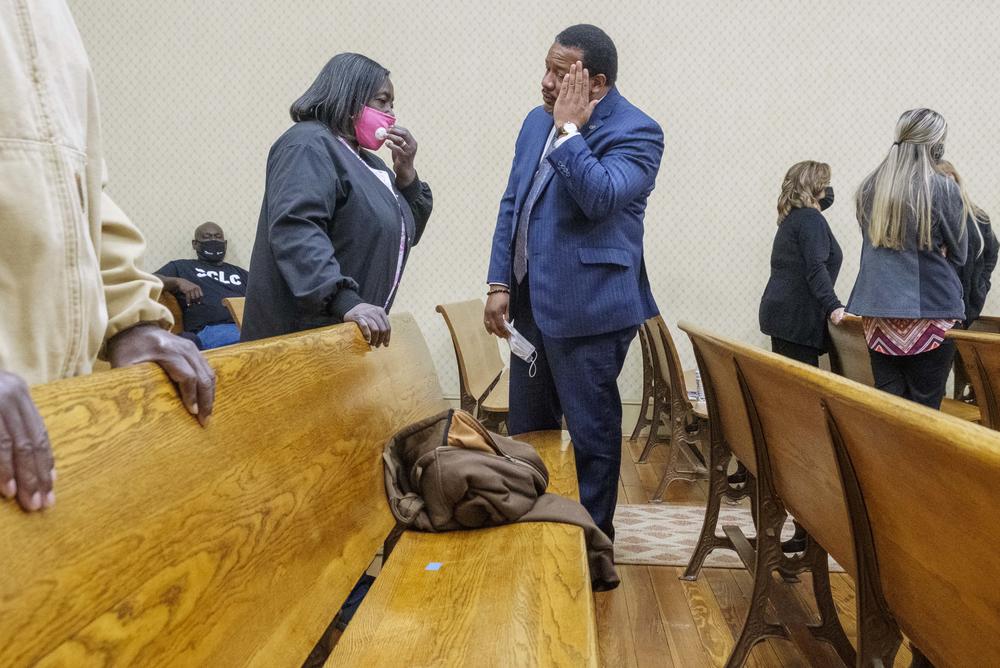
Caption
Attorney and civil rights activist Francys Johnson, right, talks with Helen Gilbert, the sister of Eurie Martin, during a break in the closing arguments in the murder trial of the three former Washington County Sheriff's Deputies in whose custody Martin died in 2017.
Credit: Grant Blankenship/GPB

